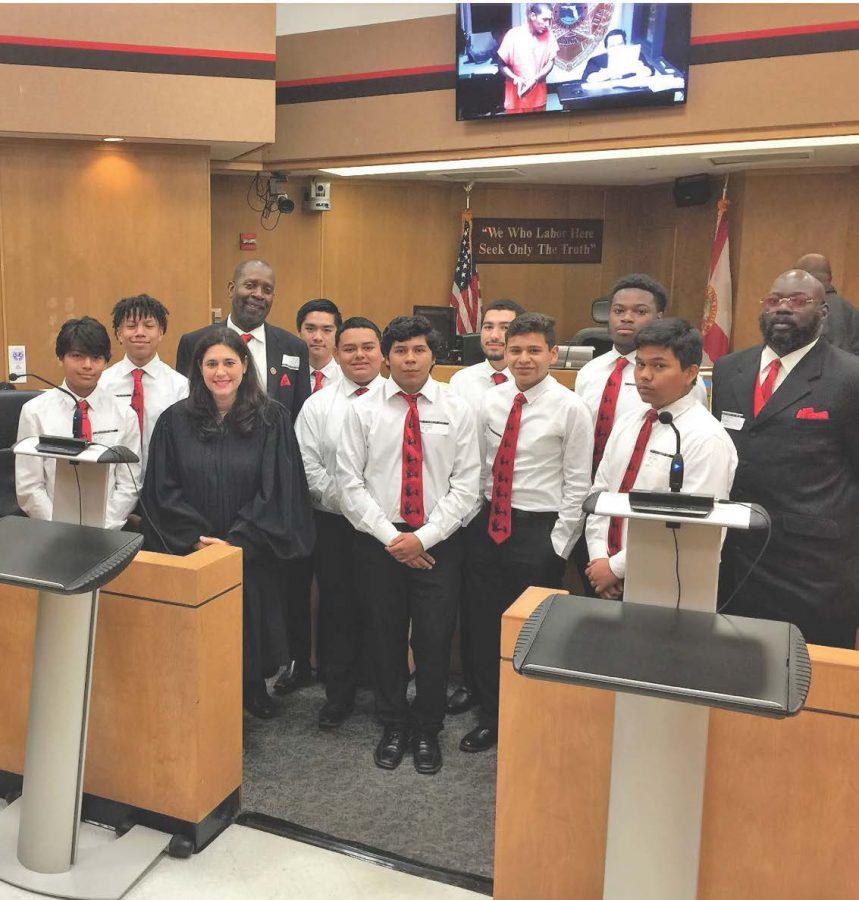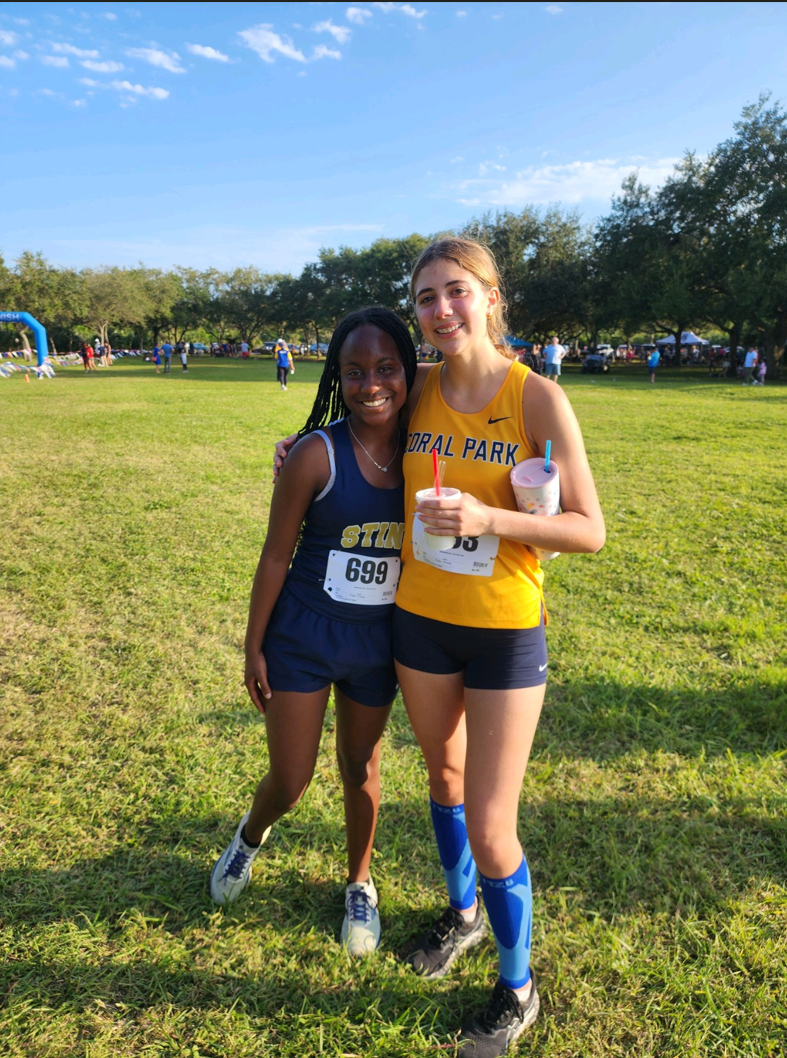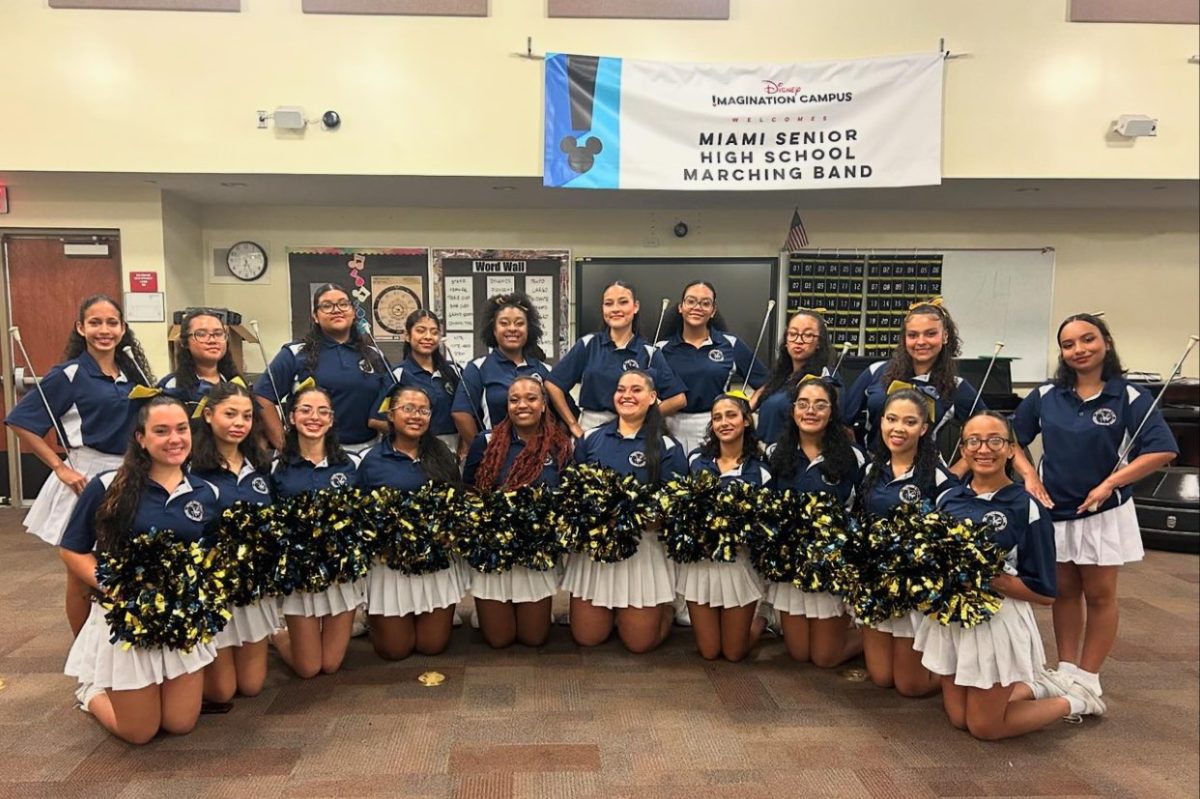5000 Role Models Play It Smart
February 21, 2020
The 5000 Role Models is an organization affiliated with the Miami High clubs, that was primarily created to prevent male students from dropping out of school or following a dangerous path in life. This organization is also a program that has expanded throughout the Miami-Dade schools and according to “5000 Role Models of Excellence Project” brochure, it has recruited over 8000 students.
The program, unlike many others, offers a scholarship and multiple field trips throughout the year, to places like the Seaquarium, Doctor’s Hospital and even the lighthouse at Key Biscayne.
Mr. Green, the sponsor of the 5000 Role Models at Miami High, said, “All the fields trips are educational, aspirational and a guide to all of the students that have participated to have a better future, career and major networking organization. We have met judges at the highest level, as well as corporate management business executives.”
Their last event took place in November 19th at the “Law Offices of the Public Defender Carlos J. Martinez”, where some of the club members had the chance to talk to retired police officers and public defenders that work with poor community families and adolescents.
During the visit, the lawyers talked about measures one could take when facing the police, or as they called it, “Play It Smart.” Some of these measures were: to stay calm, to be patient, and to show one’s hands. Even though these techniques were very well explained throughout the visit, some of the students felt like the police should also offer better treatment to the people they detain and pay the consequences for their crimes just as any other person living in the USA.
Freshman and club member Christopher Jimenez said, “The police are supposed to be like role models, but instead, some are corrupted, so the lawyers and public defenders encouraged us not to be those types of police officers.” However, he adds that when stopped by the police, it’s best to stay as calm as possible and not create trouble by respecting the police and doing as they say.
Freshman Jose Garcia, one of the club’s most recent members, talked about one of his own experiences when facing the police and applying these methods. He was headed to a party while it was raining, when a cop stopped him and asked him why he was wet and if he was getting in trouble.
Jose answered that he was wet because of the weather and that he wasn’t getting into any trouble. Even though he did apply the recommended measures, he didn’t feel comfortable with the cop stopping and questioning him without a valid reason.
“I would’ve said something, but I didn’t,” Jose said. “I kept walking… avoiding problems. Cops can shoot you and get away with it.”
This led to conversations about police brutality, which remains a big issue in society and hasn’t been solved yet, although many have protested against the abuse of power and racial profiling by some police officers.
Jose said, “Cops can get away with a lot of stuff. If you disagree with them, they can arrest you, or if they feel threatened, they can shoot you even if you’re not holding a gun.”
Although he’s never faced this kind of situation, Jose states that he has seen a lot of it in the media. This makes it seem like the measures mentioned by the public defenders are not enough to satisfy some police officers who are bound to protect us.
Jose said, “Don’t try to fight them. Follow their rules. Even if they’re wrong, follow them. I feel like cops should get some type of justice because it’s really unfair; it’s not justice.”
Another topic that was brought out by the acting club president, junior Check Ho, is the different paths a person can take after going to court for their crimes: going to jail or doing community service hours. Check said, “After learning about the criminal justice system, I started to depart away from friends that were going down a criminalistic path.”
Mr. Green said that this organization has helped a lot of students to get internships, jobs, and a better future in general. Therefore, he welcomes into the program any male student interested in joining and knowing more about how he can improve not only his behavior but also his way of organizing his work and getting to his dream career.
Glossary for understanding race and police issues
Public Defender: a lawyer employed at public expense in a criminal trial to represent a defendant who is unable to afford legal assistance.
Police Brutality: Police brutality is legally defined as a civil rights violation wherein officers exercise undue or excessive force against a civilian. This includes, but is not limited to, physical or verbal harassment, physical or mental injury, property damage, and death.
Abuse of Power: Abuse of power or abuse of authority, in the form of “malfeasance in office” or “official misconduct”, is the commission of an unlawful act, done in an official capacity, which affects the performance of official duties.
Racial Profiling: the use of race or ethnicity as grounds for suspecting someone of having committed an offense.
Police corruption: Police corruption is a form of police misconduct in which law enforcement officers end up breaking their political contract and abuse their power for personal gain. This type of corruption may involve one or a group of officers.
African Americans who have died in encounters with the police
Eric Garner, died in the New York City borough of Staten Island on July 17, 2014, after Daniel Pantaleo, a New York City Police Department (NYPD) officer, put him in a chokehold while arresting him.
Terence Crutcher, 40-year-old African American, was shot and killed by police officer Betty Jo Shelby in Tulsa, Oklahoma on September 26, 2016. He was unarmed during the encounter.
Philando Castile, a 32-year-old African American, was pulled over while driving in Falcon Heights, Minnesota, and killed on July 6, 2016, by Jeronimo Yanez, a 29-year-old Latino St. Anthony, Minnesota police officer.





